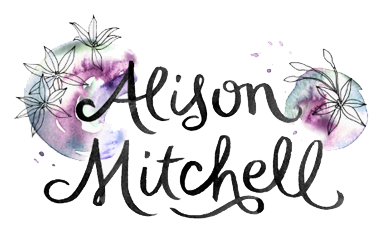Vitamin D reduces breast cancer risk
Vitamin D really is the wonder nutrient at the moment. A quick search of PubMed shows there to be almost 60 000 studies on vitamin D alone, and over 7000 of these are on vitamin D and cancer. Most of us already know about how Vitamin D is important for our bone health, but did you know it’s also important for our immune system and to protect us against cancer, particularly breast cancer (among many other things)?
Let’s take a quick look at the properties of vitamin D.
- It supports the assimilation of calcium into our bones
- It’s important for our immune system – it ‘switches on’ our immune cells to help us fight infections, but also helps us deal with auto-immune conditions and ‘foreign invaders’
- It regulates inflammation levels
- It is involved in some hormone metabolism pathways
- It is involved in our blood sugar level control and metabolism
Looking at the effects of vitamin D, it makes sense how it can also play a role in reducing our risk from cancer. But by how much does it reduce our risk? Well, the answer seems to be : a lot.
Let’s take a look at some of the research:
A 2012 study performed in Pakistan analysed the Vitamin D levels of 180 women, 90 of which had recently been diagnosed with breast cancer. In the group who had been recently diagnosed 95.8% of them were deficient in Vitamin D, compared to 77% of the women with no cancer diagnosis. This not only shows the huge prevalence of Vitamin D deficiency, but also highlights an important association between low Vitamin D levels and increased breast cancer risk [1].
It was originally thought that Vitamin D was only able to be fully metabolised in the kidneys, however studies from 2001 and on have shown that breast tissue also has the ability to metabolise Vitamin D, which may be why Vitamin D has such as affinity for breast cancer. [2]
Vitamin D may be so protective against breast cancer for many reasons. A sub-type of Vitamin D (1,25(OH)2D) has anti-inflammatory properties, helping to reduce the production of a chemical called prostaglandins (many people know this chemical to be a cause of period pain) which have been implicated in breast cancer. [2]
A population study published this year analysed a group of women, 593 with breast cancer and 580 who were cancer-free (controls). They found that 96.1% of the women with breast cancer had severe vitamin D deficiency, compared to 80% of the women without cancer. Similarly to the first study there was a significant Vitamin D deficiency across the whole population, but what was most interesting was the data showing the inverse association between Vitamin D and breast cancer – essentially the higher the levels of vitamin D they had, the lower their risk of breast cancer [3].
The benefits of sun exposure may be due to more than just Vitamin D, particularly for some other types of cancers. A systemic review of studies analysed the link between vitamin D levels, sun exposure and risk for various types of cancer. It found that higher blood levels of Vitamin D reduced the risk of breast cancer as well as colorectal cancer, but not as much for non-Hodgkin’s lymphoma and prostate cancer (however longer sunlight exposure was more beneficial for these cancers). Long-term or ‘chronic’ sun exposure compared to short-term or ‘intermittent’ sun exposure reduced the risk of all the cancers analysed. This may be due to a variety of factors such as the suns effect on our circadian rhythms and melatonin production [4].
Interestingly melatonin, a hormone controlled by our exposure to light and dark (among other things) which manages our sleep cycles is also a potent anti-oxidant that is protective against breast cancer. Some research has shown that people with disrupted melatonin such as shift workers have a significantly increased risk of cancer, particularly breast cancer [5] [6]. Melatonin is helpful as it repairs our DNA from oxidative damage and inhibits tumour cell formation, but it also reduces the tumour developing affect of excessive oestrogen, encourages the immune system to recognise the cancer calls as being foreign (cell differentiation) and then destroy them (apoptosis) [7], [8], [9]. Vitamin D has also been shown to have these properties [2]. So not only do we need to have plenty of Vitamin D, but we should also get plenty of decent sleep!
How much Vitamin D do we actually need to prevent breast cancer? Aim to get your blood levels of 25(OH)D around 100 ng/mL, but not higher than 150 ng/mL [2]. Even though this is much higher than what is considered to be normal or not deficient by pathology reports, people with these levels had the lowest risk of breast cancer [3]. Keep in mind that Vitamin D levels vary according to season, so in Summer our levels should be even higher again (about 120 ng/mL). How supplements are administered varies a lot between health professionals, from big weekly/monthly doses of 50 000IU to frequent daily doses of 600IU. It doesn’t seem to matter, as long as the cumulative amount of Vitamin D is high enough to get your levels up.
Vitamin D supplementation is generally very well tolerated. Most reports suggest that the toxicity threshold is 10,000–40,000 IU of vitamin D per day [10] however this is based on the fact that these are the upper limits of what have been studied and no toxicity has been found with these, so as yet an actual toxicity limit has still not been found.
From these studies it seems clear that having good Vitamin D levels is without doubt an important way to reduce breast cancer risk, however studies analysing the benefits of Vitamin D supplementation in women with later-stage breast cancer show inconclusive results, but the studies in this area are limited [2]. So far, it seems that Vitamin D is better at preventing breast cancer than treating it.
While there were some flaws in some of the studies, such as an insufficient pairing of the study groups and not analysing all the forms of vitamin D, we can see from this research that there is definately a connection between low levels of vitamin d and an increased risk of breast cancer. I cannot stress this enough – Do not take it for granted that you spend time in the sun and therefore should have enough Vitamin D. Get your Vitamin D tested (you may have to pay for the test, but surely knowing the importance of vitamin D it is worth it?) and if your vitamin D is not over 100 ng/mL then you should consider supplementing – consult a health care practitioner trained in nutrition such as a nutritionist, dietician or naturopath for advice on which supplement is right for you.
[2] T. Shao, P. Klein and M. L. Grossbard, “Vitamin D and Breast Cancer,” The Oncologist, vol. 17, no. 1, pp. 36-45, 2012.
[3] P. Chen, M. Li, X. Gu, Y. Liu, X. Li, Y. Wang, D. Xie, F. Wang, C. Yu, J. Li, X. Chen, R. Chu, J. Zhu, Z. Ou and H. Wang, “Higher Blood 25(OH)D Level May Reduce the Breast Cancer Risk: Evidence from a Chinese Population Based Case-Control Study and Meta-Analysis of the Observational Studies.,” PLOS One, vol. 8, no. 1, January 2013.
[4] H. van der Rhee, J. W. Coebergh and E. de Vries, “Is prevention of cancer by sun exposure more than just the effect of vitamin D? A systematic review of epidemiological studies.,” European Journal of Cancer, 10 December 2012.
[5] M. Puligheddu, S. Conti, M. Campagna, M. Meloni, M. Pau, P. Cocco and F. Marrosu, “Cancer risk among shift workers: a review.,” Giornale italiano di medicina del lavoro ed ergonomia., vol. 34, no. 3, pp. 624-6, 2012.
[6] K. Richter, J. Acker, N. Kamcev, S. Bajraktarov, A. Piehl and G. Niklewski, “Recommendations for the prevention of breast cancer in shift workers,” The EPMA Journal, vol. 2, no. 4, pp. 351-6, 2011.
[7] R. Liu, A. Fu, A. E. Hoffman, T. Zheng and Y. Zhu, “Melatonin enhances DNA repair capacity possibly by affecting genes involved in DNA damage responsive pathways.,” BMC Cell Biology, vol. 14, no. 1, 2013.
[8] V. Alvarez-García, A. González, C. Alonso-González, C. Martínez-Campa and S. Cos, “Regulation of vascular endothelial growth factor by melatonin in human breast cancer cells,” Journal of Pineal Research, 16 Aug 2012.
[9] S. Proietti, A. Cucina, R. J. Reiter and M. Bizzarri, “Molecular mechanisms of melatonin’s inhibitory actions on breast cancers.,” Cellular and Molecular Life Sciences, 25 September 2012.
[10] J. N. Hathcock, A. Shao, R. Vieth and R. Heaney, “Risk assessment for vitamin D.,” The American Journal of Clinical Nutrition, vol. 85, no. 1, pp. 6-18, 2007.
Previous posts on Vitamin D:










